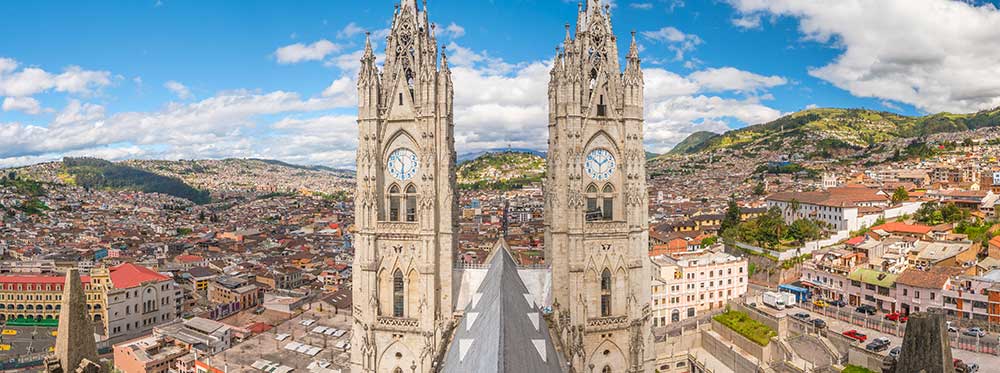International Schools in Quito are a great choice for both local and expat families as they offer globally recognized curricula, outstanding academics plus a nurturing environment for children. Discover our selection of the best International Schools in Quito, including reviews, fees, and why families choose them.
Why choose an international school in Quito?
Choosing an international school in Quito offers a multitude of benefits that cater to both the academic and personal development of students. These institutions are particularly renowned for their robust curriculum that aligns with global standards, preparing students not only for local opportunities but for global challenges as well.
Global Curriculum and Academic Excellence
Most international schools in Quito follow internationally recognized curricula such as the International Baccalaureate (IB), Advanced Placement (AP), or the British GCSE and A-levels. This global approach not only facilitates a broader perspective on various subjects but also enhances students' adaptability and preparedness for universities around the world. The rigorous standards expected at these schools ensure a high level of academic proficiency and often lead to better university placements internationally.
Cultural Diversity
One of the most significant advantages of attending an international school is the exposure to a diverse cultural environment. Students interact with peers from different nationalities, learning about various cultures, languages, and traditions. This multicultural environment fosters open-mindedness and cultural sensitivity among students, skills that are increasingly valued in the global job market.
English Proficiency and Language Development
As English is the primary medium of instruction in most international schools in Quito, students become proficient in the language, which is a critical asset in the global economy. Additionally, many schools offer second and third language options, enhancing students' linguistic skills further and preparing them for a globalized world where multilingualism is an asset.
Extracurricular Opportunities and Personal Growth
International schools often boast an impressive array of extracurricular activities that cater to a wide range of interests, from sports and arts to technology and social service. These activities not only provide a well-rounded education but also help in the holistic development of students. Leadership skills, teamwork, and personal interests are nurtured, helping students to become confident and capable individuals.
Technologically Advanced Learning Environments
The use of advanced technology in teaching and learning is another hallmark of international schools in Quito. Classrooms are equipped with the latest educational technology, and teachers are trained to integrate digital tools in their teaching, thereby enhancing learning experiences and outcomes. This exposure to technology from an early age prepares students for higher education and careers in an increasingly digital world.
Supportive Communities
International schools typically offer strong supportive communities where parents and teachers actively participate in students' education. This collaborative environment ensures that students receive personalized attention, with ample support for both academic and emotional needs. The inclusive community spirit helps students feel valued and understood, contributing to their overall well-being and success.
Top rated International Schools in South America 2025
-
Lincoln International Academy
0 reviewsInternational Schoolin Santiago de Chile, Chile· from 3,418,785 to 6,117,390 CLP / yearLincoln International Academy is a co-ed, day school with a high academic standard and a solid training in the English language.Read moreWhy parents choose this schoolBilingual English SpanishFinnish Curriculum IB Curriculum -
The British School of Brazil
0 reviewsInternational Schoolin Sao Paulo, Brazil· from 90,000 to 129,000 BRL / yearThe British College of Brazil, one of São Paulo’s most distinguished international schools, caters to students of 38 different nationalities.Read moreWhy parents choose this schoolBritish Curriculum IB Curriculum OtherIntellectual Giftedness -
Avenues São Paulo
0 reviewsInternational Schoolin Sao Paulo, Brazil· from 198,000 to 198,000 BRL / yearOpened in August 2018, Avenues São Paulo is the second global campus of Avenues: The World School, serving students from the age of 2 to 18.Read moreWhy parents choose this schoolAmerican Curriculum OtherADHD Autism Dyslexia Intellectual Giftedness -
Beacon School
1 reviewsInternational Schoolin Sao Paulo, Brazil· from 85,000 to 153,000 BRL / yearBeacon is an IB Continuum School with an international program. We develop curious students with critical thinking skills, striving to create a more ethical and peaceful society for the 21st century.Read moreWhy parents choose this schoolBilingual English PortugueseIB Curriculum Other -
St. Nicholas School Alphaville
4 reviewsInternational Schoolin Sao Paulo, Brazil· from 95,000 to 155,000 BRL / yearSt. Nicholas Alphaville serves who live in Alphaville or Tamboré, seeking a personal and purposeful learning: a unique learning adventure with the programmes of the International Baccalaureate.Read moreWhy parents choose this schoolBilingual English PortugueseIB Curriculum MontessoriADHD Autism Dyslexia Intellectual Giftedness -
St. Nicholas School Pinheiros
4 reviewsInternational Schoolin Sao Paulo, Brazil· from 95,000 to 155,000 BRL / yearSt. Nicholas School serves the families of Sao Paulo seeking a personal and purposeful learning experience: a unique learning adventure following the programmes of the International Baccalaureate.Read moreWhy parents choose this schoolBilingual English PortugueseIB Curriculum MontessoriADHD Autism Dyslexia Intellectual Giftedness
IB Schools in South America
How much do International Schools in South America cost?
According to World Schools data, the yearly tuition fee for International Schools in South America ranges between $6000 and $8000. However, the cost varies significantly depending on various factors such as the school curriculum, extracurricular activities, location, and facilities, and can go up to $20100.
The average yearly cost is $7400, around $800 per month, and can go up to the maximum monthly cost of $2100.
Additionally, most schools will also charge a one-time registration fee, and you also need to count an extra budget during the year for extracurricular trips, holiday camps, etc.
If you would like to explore International Schools in South America with yearly fee filters, please use our advanced search filters.
Parent and Student Reviews of International Schools in South America
Summary
International schools in Quito provide students with a globally recognized curriculum, a multicultural learning environment, and advanced English language skills. These institutions also offer extensive extracurricular activities and state-of-the-art technological facilities, fostering academic excellence and personal growth in a supportive community.
